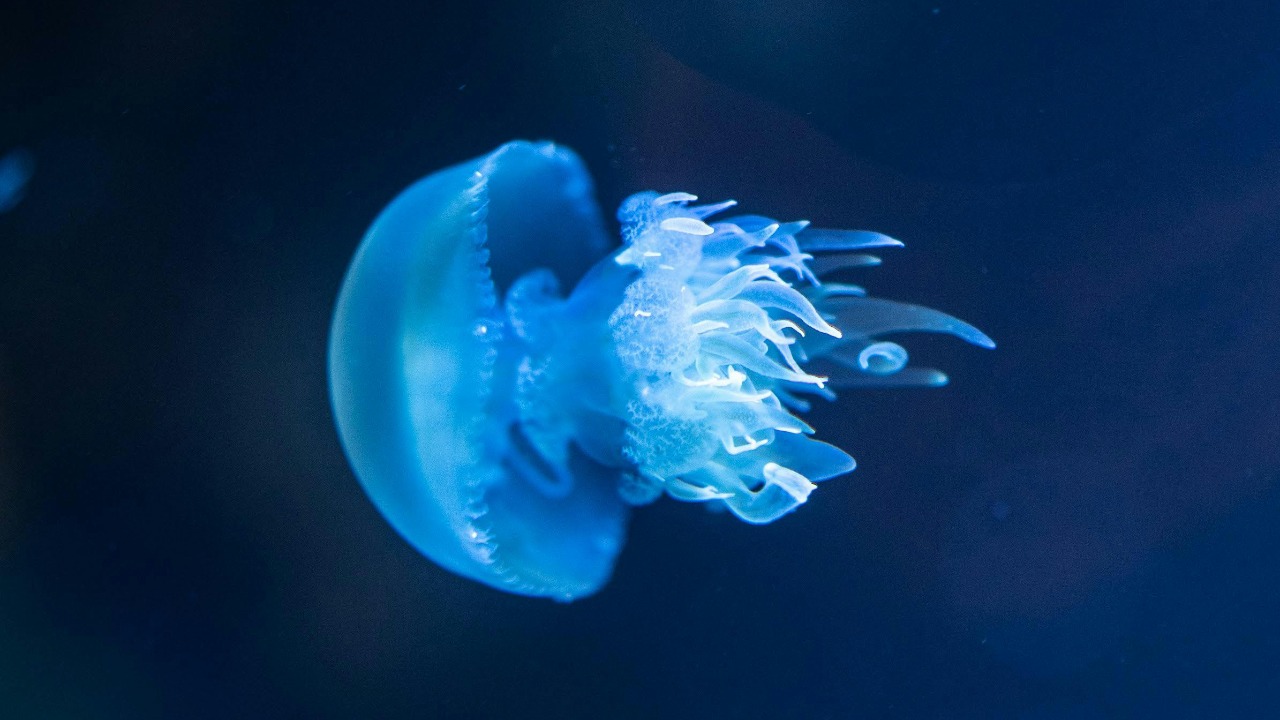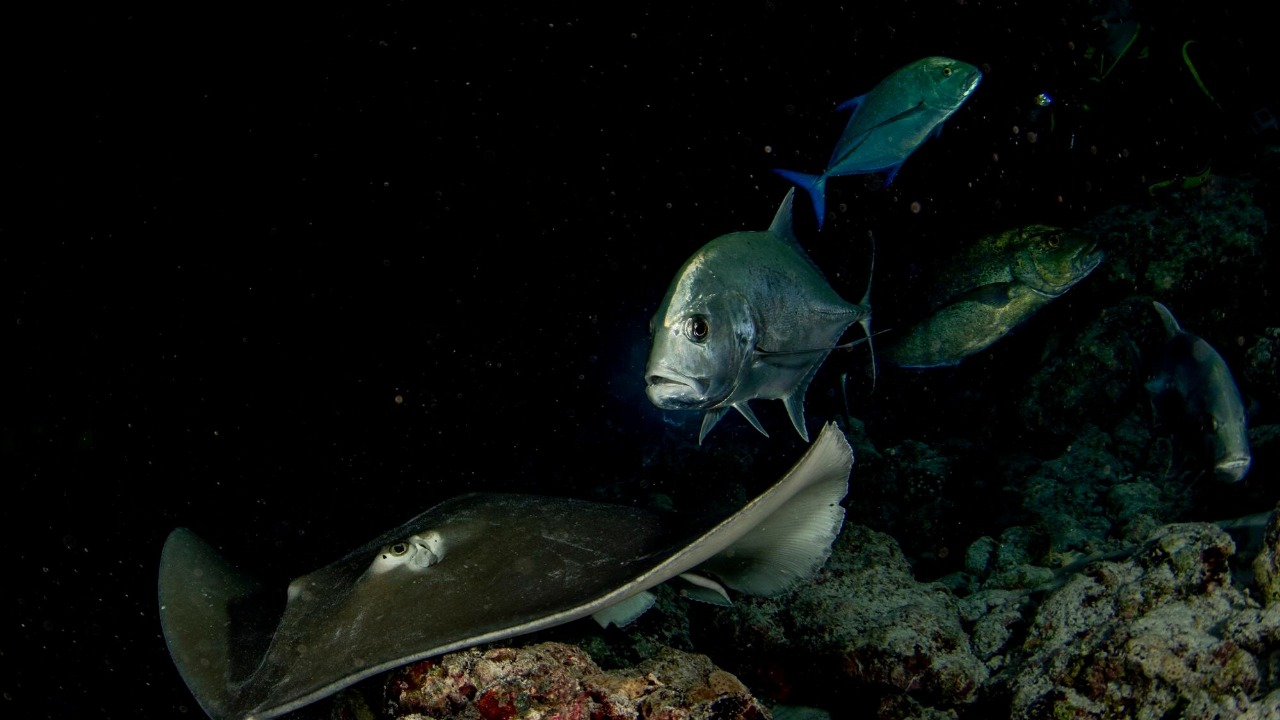Scientists have recently uncovered a fascinating discovery: deep-sea fish thriving in total darkness. These creatures have adapted to one of the most extreme environments on Earth, providing new insights into life under the ocean’s surface. Understanding these organisms’ adaptations sheds light on the incredible diversity and resilience of life in seemingly inhospitable conditions.
The Mysterious World of the Deep Sea

The deep sea is a realm of extremes, characterized by high pressure, frigid temperatures, and a complete absence of sunlight. These conditions create a unique environment where only the most resilient organisms can survive. At depths where sunlight cannot penetrate, the pressure can be over 1,000 times that at sea level, and temperatures hover just above freezing. Despite these harsh conditions, the deep sea is home to an astounding array of life forms that have evolved remarkable adaptations to thrive in such an inhospitable world.
Exploring the deep-sea ecosystem reveals a rich tapestry of biodiversity. From bizarre-looking fish with elongated bodies and needle-like teeth to delicate jellyfish and giant tube worms, the variety of species is staggering. These organisms play critical roles in the deep-sea food web, each adapted to occupy a specific niche in the ecosystem.
Delving into the depths of the ocean presents a myriad of challenges for researchers. Traditional exploration methods often fell short due to the immense pressure and darkness. However, modern technological advancements, such as submersibles and remotely operated vehicles (ROVs), have revolutionized our ability to study the deep sea. These tools allow scientists to observe and document marine life in its natural habitat, overcoming historical limitations. Recent breakthroughs, including the development of autonomous underwater vehicles (AUVs), have further expanded our capacity to explore these remote environments, offering unprecedented access to the mysteries of the ocean’s depths.
Adaptations to Total Darkness

Deep-sea fish exhibit a range of extraordinary biological adaptations that enable them to survive in total darkness. One of the most fascinating adaptations is bioluminescence, a trait that allows organisms to produce their own light. This ability serves multiple purposes, from attracting prey and deterring predators to facilitating communication and mating. Additionally, many deep-sea fish have evolved specialized eyes that enhance their ability to detect even the faintest glimmers of light, giving them a survival advantage in the pitch-black depths.
Surviving in low-oxygen environments also requires unique physiological adaptations. Certain species have developed efficient oxygen-binding proteins, enabling them to extract and utilize oxygen more effectively. Additionally, some fish possess a lower metabolic rate, reducing their overall oxygen demand and allowing them to endure prolonged periods of scarcity. These adaptations underscore the incredible resilience of deep-sea organisms and their capacity to thrive in one of the most extreme habitats on Earth.
Behavioral adaptations are equally crucial for surviving in the deep sea. In the absence of light, many deep-sea fish have developed specialized feeding strategies that rely on detecting movement or chemical cues in the water. Some predators have elongated bodies and specialized jaws, allowing them to ambush unsuspecting prey with precision. Reproductive behaviors also reflect adaptations to deep-sea conditions, with some species exhibiting unique mating rituals that ensure the continuation of their lineage in this challenging environment.
The Role of Deep-Sea Fish in Marine Ecosystems

Deep-sea fish play a vital role in marine ecosystems, contributing significantly to nutrient cycling and energy flow. As part of the food web, these fish help transfer energy from primary producers to higher trophic levels, supporting a diverse array of marine life. Their interactions with other species, such as scavenging on the carcasses of larger animals or preying on smaller organisms, highlight their integral role in maintaining the balance of deep-sea ecosystems.
Environmental changes pose significant challenges to deep-sea habitats, with climate change and human activities exerting growing pressure on these fragile ecosystems. Rising ocean temperatures and acidification can disrupt the delicate balance of the deep-sea environment, threatening the survival of many species. Additionally, human activities, such as deep-sea mining and trawling, can have devastating impacts on these habitats, underscoring the importance of conservation efforts to protect deep-sea biodiversity. Addressing these challenges requires a comprehensive understanding of the ecological significance of deep-sea fish and their roles in marine ecosystems.
Scientific and Technological Innovations

Advancements in research methodologies have been instrumental in expanding our understanding of deep-sea biology. The use of submersibles, ROVs, and AUVs has revolutionized our ability to explore the deep sea, providing unprecedented access to previously inaccessible areas. These technologies allow scientists to observe and document deep-sea life in its natural habitat, facilitating the study of ecological interactions and adaptations. Furthermore, advances in genetic and molecular techniques have enabled researchers to delve deeper into the genetics and evolutionary history of deep-sea species, uncovering the mechanisms that underpin their remarkable adaptations.
The future of deep-sea research holds exciting possibilities for discovery and exploration. Continued investment in technological innovation and international collaboration will be crucial in advancing our understanding of these remote ecosystems. By fostering partnerships among research institutions worldwide, scientists can conduct comprehensive studies that provide invaluable insights into the biology and ecology of deep-sea organisms. The potential for groundbreaking discoveries in this field underscores the importance of sustained exploration and research efforts.
Implications for Human Understanding and Exploration

Discoveries in the deep sea have profound implications for expanding our knowledge of life on Earth. These findings challenge existing biological theories and inspire new lines of inquiry into the resilience and adaptability of life in extreme environments. The insights gained from studying deep-sea organisms may also catalyze technological innovations with applications beyond marine biology, such as developing new materials or bio-inspired technologies.
Ethical and environmental considerations are paramount in deep-sea exploration. Balancing the pursuit of knowledge with the preservation of fragile marine ecosystems is essential to ensure sustainable research practices. Discussions around the ethical implications of deep-sea research and exploitation are critical in shaping policies that protect these unique habitats while allowing for scientific advancement.
The exploration of the deep sea presents an opportunity to expand our understanding of the natural world and inspire future generations of scientists and explorers. By embracing ethical and environmentally conscious practices, we can ensure that the mysteries of the deep sea continue to captivate and educate, enriching our appreciation of the diverse and resilient life forms that inhabit our planet.